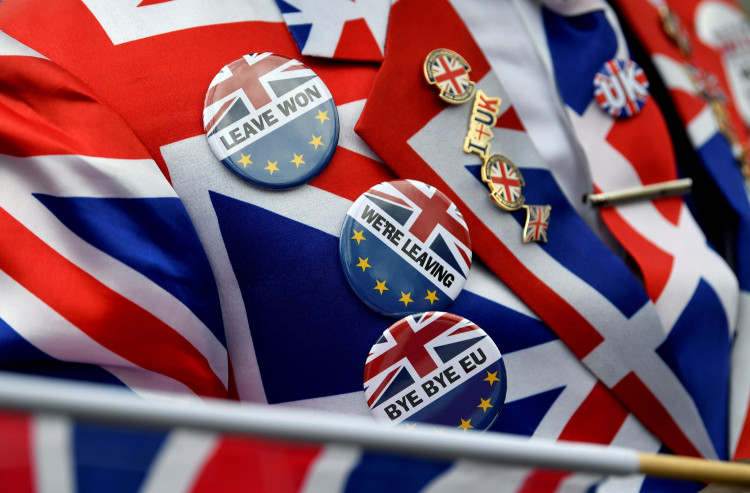Prime Minister Boris Johnson finally saw the United Kingdom get Brexit done at 12:00 p.m. CET (2300 p.m. GMT) on January 31, officially ending 47 years of membership in the European Union, the world's largest trading bloc.
The three-and-a-half years it took the UK to get to this point since the Brexit referendum of June 23, 2016 will be followed by even tougher negotiations with the rest of the world for trade deals vital to the struggling British economy. The economy is expected to grow at a weak 1.2% in 2019 and a smaller 1% in 2020, according to multinational professional services firm PricewaterhouseCoopers (PwC).
PwC, however warned its estimates "assume an orderly exit from the EU." It said risks "are weighted to the downside over this period due to the possibility of a more disorderly Brexit as well as global economic risks."
The UK economy grew by just 0.3% in the third quarter of 2019 after shrinking in Q2. Annual growth for the first three quarters slowed to just 1%, the weakest since 2010.
The tough -- and some say, impossible -- job of wringing a trade deal from the European Union before December 31, 2020 is all but undoable despite Johnson's unrealistic optimism to the contrary. The simplest but most potent argument for this conclusion is one year isn't enough time to craft a complex trade deal.
Immensely complicating the situation is the likelihood the United Kingdom will soon cease to exist as a political and geographic entity and will be replaced by four separate countries.
Only England and Wales voted to leave the EU in the referendum of 2016. Scotland and Northern Ireland voted to stay. Before the clock struck 12 on Friday in Brussels, the political and economic seat of the EU, First Minister of Scotland Nicola Sturgeon of the pro-independence Scottish National Party (SNP) again vowed to renew the campaign for Scottish independence.
"As of 11:00 pm tonight (2300 GMT) the U.K. that Scotland voted to remain part of, a U.K. inside the E.U., the status quo that a majority voted for, will no longer exist," she said. "There will be a material change in the circumstances that prevailed in 2014."
Sturgeon was referring to the last referendum on Scottish independence. She asserts her party has the political support to hold another referendum. Should the Scots vote for independence, there is nothing to stop the dissolution of the United Kingdom.
Sturgeon said Brexit has put Scotland on the wrong road in that it doesn't want to exit the EU. Ominously, she said Scotland is "on the cusp" of going its own way.
Johnson will now have to contend with the start of a "transition period" in which the UK remains a member of the EU and its customs union but begins negotiations with the EU to come to a free-trade deal. The U.K. won't have voting rights on EU matters during the transition but will still be bound by EU rules.
Johnson's Brexiteer government has set an impossible deadline to come to a trade deal with the EU by the end of this year. Failing to do so will mean the UK will leave the EU with "no deal" and will have to revert to World Trade Organization (WTO) rules.
Under WTO rules, each member must grant the same most favored nation (MFN) market access to all other WTO members. This means UK exports to the EU post-Brexit will be subject to the same customs checks, tariffs and regulatory barriers the UK and EU currently charge on trade with countries such as the U.S.
Brussels has warned Johnson the trading relationship between the UK and the EY won't be the same post-Brexit. Irish Prime Minister Leo Varadkar hinted the EU will be the "stronger team" in post-Brexit trade talks. He also said a trade deal will be "difficult."
As expected, Johnson brushed aside criticism about his capability to deliver a complex trade deal in only 11 months. He again claims he can "wrap up" a deal by Dec. 31, 2020.
Some analysts see the impending break-up of the UK as the bitterest fruit of Brexit, which was driven by resurgent English racism, a fear of immigrants, euroskepticism, a nostalgic desire to revive the faded glory of the defunct British Empire and feelings of British "exceptionalism."






